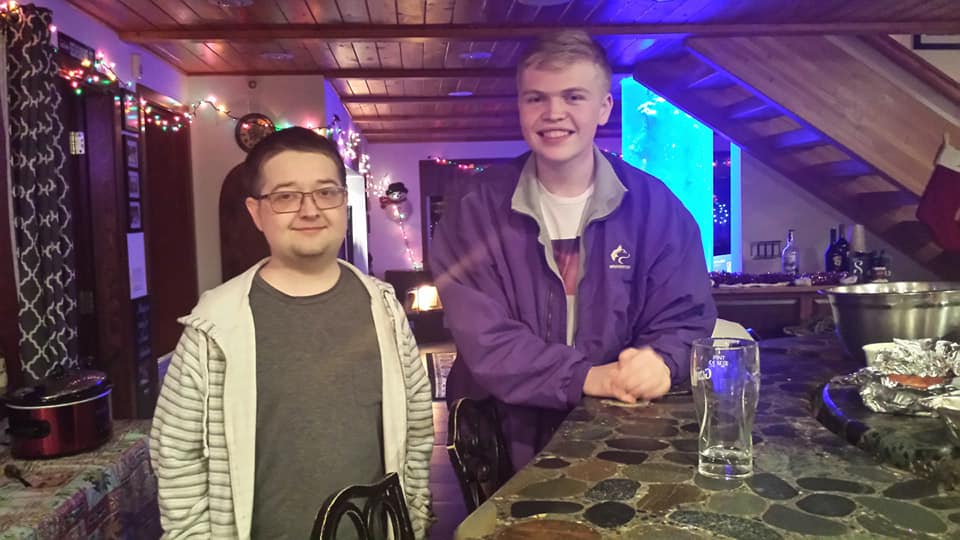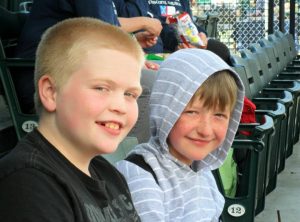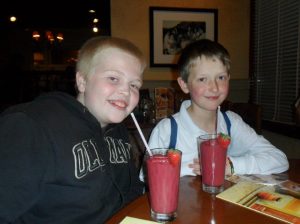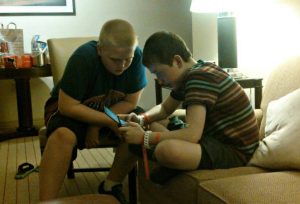My Son’s Friendship Was Not Defined by PH
Written by |

My son Cullen was excited to tell me he’d made a friend on his first day of kindergarten. Fifteen years later, he and Keenan remain best friends. Cullen’s battle with pulmonary hypertension (PH) might have challenged their friendship, but it never came close to impacting their bond.
Cullen was diagnosed with PH at 8 years old. A central line was placed in his chest so we could start IV treatment with Flolan (epoprostenol GM). He returned home with what felt like a new appendage. For the next five years, he would never be without his Flolan pump — or the stress of keeping it running.
To distract him from his scary new reality, we invited Keenan for a visit. It was a joy listening to the boys laugh and have fun — until Cullen’s pump alarmed. Without a nurse at home, his dad and I frantically assessed the situation and fumbled to fix the problem. Over the years, we became very proficient at dealing with pump alarms, but our first experience was terrifying. Poor Keenan wanted to go home.
The Pulmonary Hypertension News forums are a place to connect with other patients, share tips and talk about the latest research. Check them out today!
I was wrong in thinking the experience would end their friendship. The very next day, Keenan called to see how Cullen was feeling and asked when they could get together again. I was so impressed by his reaction to Cullen’s emergencies. I have often said that despite PH, the boys remained friends. However, after interviewing Keenan via email for this column, I understand the little influence PH had on their friendship.
Keenan remembered the panic he witnessed. He also remembered feeling afraid for his friend, but “giving up” on Cullen was never an option. “It would’ve never even occurred to me to stop being friends with Cullen over his health issues,” Keenan said. He emphasized, “A medical scare here and there would be the absolute last thing to scare me off.”
PH was part of the picture early on in their friendship, so Keenan said it was easier to accept the way things were. His earliest memories of Cullen’s illness were seeing him breathless during gym class and wearing a weird backpack with tubes. He remembers feeling concern for his friend but was too young to really comprehend what Cullen’s diagnosis entailed. The complications became clearer as they grew up, but Keenan only became more determined that PH wouldn’t affect their friendship.
There’s a great lesson in what Keenan shared with me next: “The last thing I wanted was misguided and borderline offensive sympathy from grown-ups with limited knowledge of our friendship — even in my young age I was very certain that in no way did I want to be the victim of this story. For some reason, people seemed to think that being a friend to someone with a serious illness was some huge cross to bear, and while I can understand that line of thinking from an outsider’s perspective, it was so frustrating to deal with.”
He felt it was unacceptable to receive attention for simply knowing Cullen. Instead, he did everything in his power to divorce their friendship as much as possible from PH. It frustrated him when people would say he was such a good friend to Cullen despite his condition. Keenan pointed out, “I wasn’t being congratulated for befriending any of my other friends.” He would always leave those conversations feeling guilty for being praised over nothing. “I’m not doing charity work,” he would think to himself. “I’m just hanging out with my friend.” He has observed that adults often have a romanticized view of how illness affects a person’s relationships. Keenan said, “That simply was not the case at all for me!”
Cullen received his heart and double-lung transplant when he was 14. During his recovery, Keenan and his mom frequently flew out of state to visit us. A favorite memory of Keenan’s from that time is a video game they played for hours on end. Fighting monsters distracted them from the chaos so they could enjoy being kids for a while.
Keenan advises others in his situation to be there for their friend. At times, Cullen wished he could stop being the PH patient and just be an ordinary kid. “The only thing I could do to support him,” Keenan said, “was to be friends like normal.” He emphasized, “Treating someone different because they suffer from a disease is a recipe for resentment and frustration. They are human beings first and foremost, and your treatment of them should not be defined — let alone even be influenced — by their pulmonary hypertension.”
***
Note: Pulmonary Hypertension News is strictly a news and information website about the disease. It does not provide medical advice, diagnosis, or treatment. This content is not intended to be a substitute for professional medical advice, diagnosis, or treatment. Always seek the advice of your physician or other qualified health provider with any questions you may have regarding a medical condition. Never disregard professional medical advice or delay in seeking it because of something you have read on this website. The opinions expressed in this column are not those of Pulmonary Hypertension News or its parent company, Bionews Services, and are intended to spark discussion about issues pertaining to pulmonary hypertension.







Jenn
Wonderful story and even better outcome.
Jenn
18 year survivor, so far
Colleen Steele
Thank you, Jenn! Congratulations to you on 18 years! That is amazing!